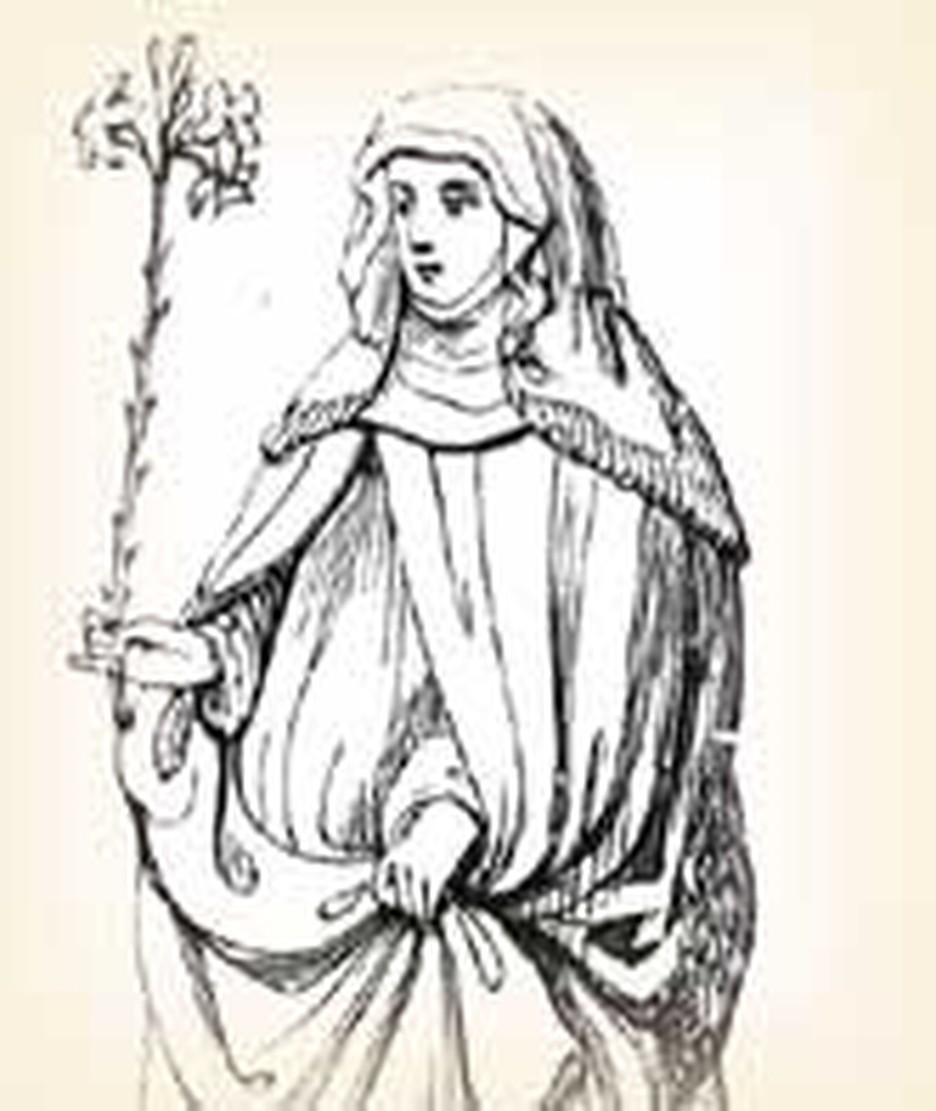
Paula began to weep. In Bethlehem on December 31, 439, her fifty-six year old cousin Melania was dying. In a reversal of the expected role, the dying woman consoled her weeping friend. All day long visitors came, until at last Melania had to plead, "Now let me rest."
Melania, who had once been one of the wealthiest women of Rome, would die far from home in a small stone cell. Daughter of a Senator, her annual income (from properties in eight countries) amounted to perhaps twenty million American dollars a year. She was just thirteen when she was compelled to marry against her will.
Children soon came. The first was a daughter, the second a son. Melania fasted so rigorously during this second pregnancy that the child came early. Mother and son barely survived. In fact, both of Melania's children died young. Melania insisted that her husband, Pinianus, free her for a life of poverty if she recovered. He agreed and she got better.
Melania then convinced her husband to join her in fasting, prayer and good works. Instead of using their money for themselves, they began to build monasteries and ransom slaves with it. They converted their mansion to the care of the sick and tended them with their own hands. With sales of property, they financed church buildings and other projects for their faith.
Their home was so valuable that no buyer could be found. Eventually, the invading Visigoths burned it. (Visigoths were a tribe of west Germans who overan the Roman Empire.) Melania and her husband escaped before the disaster.
In their wanderings across North Africa, Melania met the great Augustine of Hippo and his friend Alypius. Later the pair spent time with desert monks in Egypt. Finally they came to Jerusalem where Melania's cousin Paula introduced her to Jerome, translator of the Vulgate. The scholar and the heiress became friends.
Melania lived in a cave carved in rock where she practiced an austere lifestyle and wore a heavy chain under her outer garments. Many Christians thought such practices helped them keep their mind off worldly things. Pinianus died.
Her uncle Volusian, an ambassador in Constantinople urged her to come to court. He hoped she might marry Emperor Valentinian III. She did travel to court and became a favorite with the imperial family. However, marriage was not on her mind. She battled the Nestorian heresy and converted her uncle. He died confessing Christ with his neice at his side.
Melania returned to Palestine. Empress Eudocia, wife of Theodosius visited her while touring the holy land.
For many years the Greek church considered her a saint. In the nineteenth century, manuscripts telling the story of her life were found and the Roman Church added her to its list of saints in 1908.
Resources:
- Butler, Alban. "St. Melania the Younger." Lives of the Saints. (various editions).
- "Melania the Younger, Widow, and Pinian." Saints of the Day. http://users.erols.com/saintpat/ss/1231.htm#mela
- Schlitz, Charles. St. Melania (the Younger). Catholic Encyclopedia. New York: Robert Appleton, 1911.
- Staley, Tony. "Almost Like Winning the Lottery." The Compass. http://www.gbdioc.org/compass/2000-12-22/00cn1222f2.htm


